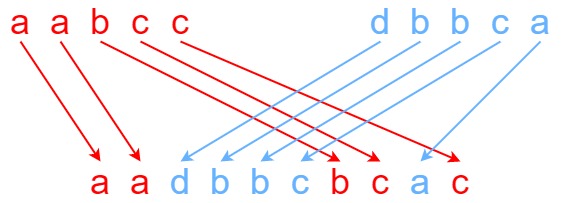2021-06-02 Daily-Challenge
Today I have done Online Election and leetcode's June LeetCoding Challenge with cpp.
Online Election
Description
In an election, the i-th vote was cast for persons[i] at time times[i].
Now, we would like to implement the following query function: TopVotedCandidate.q(int t) will return the number of the person that was leading the election at time t.
Votes cast at time t will count towards our query. In the case of a tie, the most recent vote (among tied candidates) wins.
Example 1:
Input: ["TopVotedCandidate","q","q","q","q","q","q"], [[[0,1,1,0,0,1,0],[0,5,10,15,20,25,30]],[3],[12],[25],[15],[24],[8]]
Output: [null,0,1,1,0,0,1]
Explanation:
At time 3, the votes are [0], and 0 is leading.
At time 12, the votes are [0,1,1], and 1 is leading.
At time 25, the votes are [0,1,1,0,0,1], and 1 is leading (as ties go to the most recent vote.)
This continues for 3 more queries at time 15, 24, and 8.
Note:
1 <= persons.length = times.length <= 50000 <= persons[i] <= persons.lengthtimesis a strictly increasing array with all elements in[0, 10^9].TopVotedCandidate.qis called at most10000times per test case.TopVotedCandidate.q(int t)is always called witht >= times[0].
Solution
class TopVotedCandidate {
vector<int> leading;
vector<int> &_times;
int len;
public:
TopVotedCandidate(vector<int>& persons, vector<int>& times): _times(times) {
unordered_map<int, int> cnt;
len = persons.size();
leading.resize(len);
int curMax = 0;
int curLeading = -1;
for(int i = 0; i < len; ++i) {
cnt[persons[i]] += 1;
if(cnt[persons[i]] >= curMax) {
curMax = cnt[persons[i]];
curLeading = persons[i];
}
leading[i] = curLeading;
}
}
int q(int t) {
int offset = upper_bound(_times.begin(), _times.end(), t) - _times.begin();
return offset == len ? leading.back() : leading[offset - 1];
}
};
June LeetCoding Challenge 2
Description
Interleaving String
Given strings s1, s2, and s3, find whether s3 is formed by an interleaving of s1 and s2.
An interleaving of two strings s and t is a configuration where they are divided into non-empty substrings such that:
s = s1 + s2 + ... + snt = t1 + t2 + ... + tm|n - m| <= 1- The interleaving is
s1 + t1 + s2 + t2 + s3 + t3 + ...ort1 + s1 + t2 + s2 + t3 + s3 + ...
Note: a + b is the concatenation of strings a and b.
Example 1:

Input: s1 = "aabcc", s2 = "dbbca", s3 = "aadbbcbcac"
Output: true
Example 2:
Input: s1 = "aabcc", s2 = "dbbca", s3 = "aadbbbaccc"
Output: false
Example 3:
Input: s1 = "", s2 = "", s3 = ""
Output: true
Constraints:
0 <= s1.length, s2.length <= 1000 <= s3.length <= 200s1,s2, ands3consist of lowercase English letters.
Follow up: Could you solve it using only O(s2.length) additional memory space?
Solution
class Solution {
public:
bool isInterleave(string s1, string s2, string s3) {
int len1 = s1.length();
int len2 = s2.length();
int len3 = s3.length();
if(len1 + len2 != len3) return false;
bool dp[len2 + 1];
for(int i = 0; i <= len1; ++i) {
for(int j = 0; j <= len2; ++j) {
if(!i && !j) {
dp[j] = true;
} else if(!i) {
dp[j] = dp[j - 1] && (s2[j - 1] == s3[i + j - 1]);
} else if(!j) {
dp[j] = dp[j] && (s1[i - 1] == s3[i + j - 1]);
} else {
dp[j] = (dp[j - 1] && (s2[j - 1] == s3[i + j - 1])) ||
(dp[j] && (s1[i - 1] == s3[i + j - 1]));
}
}
}
return dp[len2];
}
};